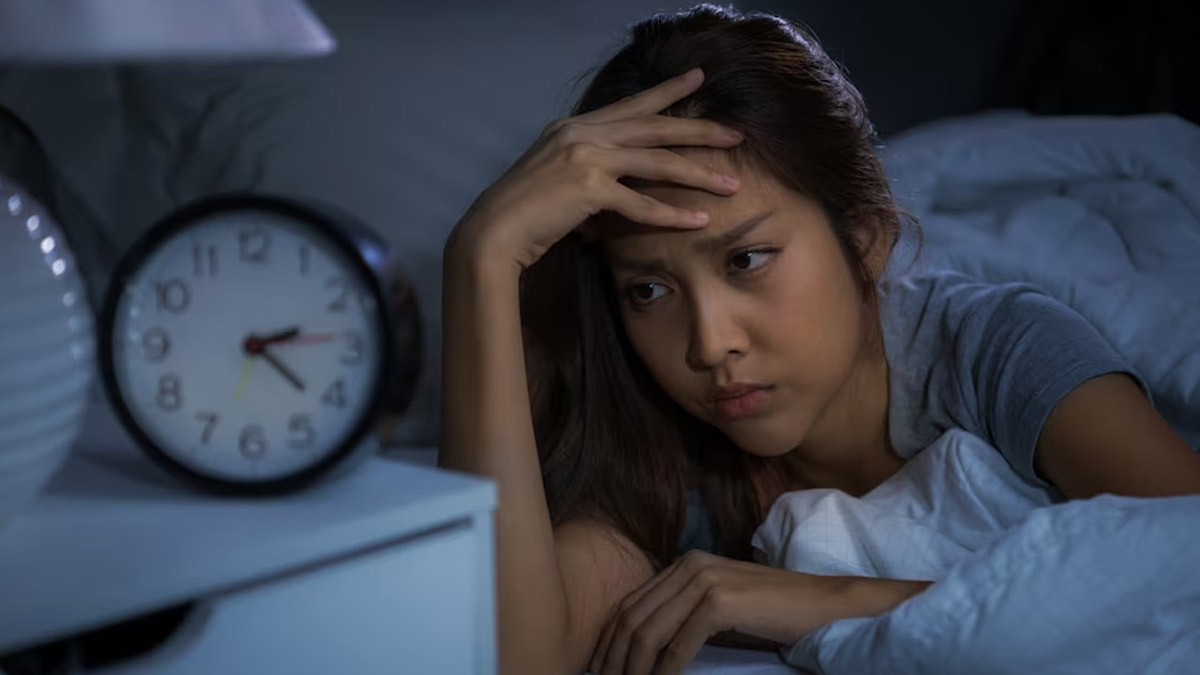
People with dementia often experience difficulty falling asleep, staying asleep, or waking up frequently during the night. It can significantly impact sleep patterns, leading to various sleep-related issues like insomnia, restless sleep, and sundowning. We spoke to our expert Dr Shiva Kumar HR, Consultant – Neurologist, Gleneagles BGS Hospital, Kengeri, Bengaluru, explained how dementia affects sleep and ways to manage it.
Table of Content:-

“Sleep is a complex behavioural state whose ultimate functions are still not fully understood. As we age, sleep becomes more fragmented, leading to increased nighttime awakenings and a greater inclination toward daytime sleepiness. The magnitude of disordered sleep among individuals affected by dementia has been demonstrated, and disturbed sleep is a major clinical problem in dementia,” highlighted Dr Kumar.

He added, “Comorbid insomnia and other sleep disturbances are common in patients with neurodegenerative disorders, such as Alzheimer’s Disease (AD) and other dementing disorders. The appearance of sleep problems and their timing depend on the type and stage of dementia.” However, variations in sleep patterns are more noticeable in the early stages of dementia than in the later stages.
In a 2017 study involving 431 consecutive patients seen across 10 centres for mild cognitive impairment or dementia, over 60% also fulfilled the criteria for a sleep disorder.
Also Read: 10 Early Signs And Symptoms Of Alzheimer's And Dementia
Types of Dementia and Sleep Disturbances

“Individuals suffering from dementia with Lewy Bodies (DLB) and Parkinson’s Disease (PD) dementia have the highest frequency of occurrence of any sleep disturbances, with 90% of patients affected. The increased insomnia frequency was identical in AD, Frontotemporal Dementia (FTD) patients and Vascular Dementia (VaD),” said Dr Kumar.
Impact on Quality of Life and Functioning
Sleep disturbances can have a negative impact on the quality of life and functional abilities of patients. They are also linked to a higher risk of psychiatric symptoms. In individuals with AD, poor sleep can lead to increased irritability during the day and reduced attention, motivation, and cognitive performance. Also, poor sleep increases the risk of serious health problems and even mortality in patients with dementia.
Also Read: Troubled With Sleep Issues? Expert Lists 10 Reasons For Poor Sleep Schedule
Managing Sleep Disturbances

The goal of managing sleep disturbance in dementia should be to improve both night-time sleep and daytime functioning. Dr Kumar said, “Clinical assessment of individuals with sleep disturbances must always include screening for secondary causes, including medical and psychiatric conditions (depression), medication side effects, and specific sleep disorders.” Treatment should start with behavioural therapy and, if indicated, should be combined with pharmacologic therapy.
Non-Pharmacologic Strategies
- “Many behavioural treatments for insomnia, including stimulus control, sleep restriction, progressive muscle relaxation, biofeedback, sleep hygiene education, paradoxical intention, and multicomponent cognitive behavioural therapy, are known to be effective with older adults,” said Dr Kumar.
- Sleep hygiene practices to improve sleep include establishing consistent daily times for going to bed and arising from bed, establishing a bedtime routine, and limiting napping to a brief time in the morning or early afternoon.
- Acupuncture therapy increases nocturnal melatonin secretion and reduces insomnia and anxiety.
Pharmacologic Interventions
There is a full range of medications used to treat sleep disorders, each with particular benefits and potential for harm.
Dr Kumar added, “Benzodiazepines and non-benzodiazepine hypnotics like zolpidem and zaleplon are commonly recommended for short-term relief of sleep difficulties. Melatonin can also be used for this purpose. It is important to use medication carefully, considering potential side effects before prescribing hypnotic and psychotropic agents. When drug therapy is used, it is recommended to use it for the short-term only.”
[Disclaimer: This article contains information provided by an expert and is for informational purposes only. Hence, we advise you to consult your own professional if you are dealing with any health issues to avoid complications.]
Also watch this video
How we keep this article up to date:
We work with experts and keep a close eye on the latest in health and wellness. Whenever there is a new research or helpful information, we update our articles with accurate and useful advice.
Current Version